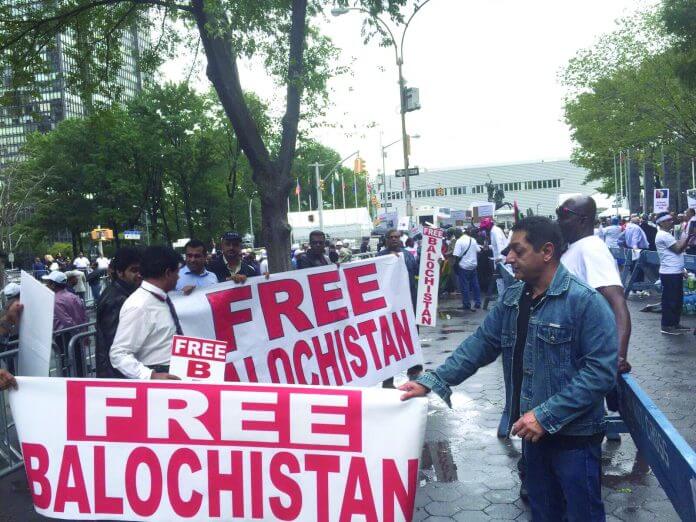According to a report by the Daily Sun, a Bangladeshi newspaper, Ayman Bilal, the Major General of the Pakistani Army, admitted to being tasked by China to bring an end to the freedom movement in Balochistan. He reportedly said, “China has deployed me here to crush the Baloch movement and has given me a six-month task,” adding, “China has paid me a salary and a large sum of money and officially posted me here for their regional interests…”. This is the first admittance by a serving Pakistani Major General of China’s role in the crackdown on the liberation movement in Balochistan.
Moreover, referring to Iran as “the biggest enemy of Pakistan”, he said that the Pakistani Army would act against Iran’s conspiracies against the China Pakistan Economic Corridor (CPEC), and “go inside Iran and take action against them.” Bilal said that Pakistan currently had the option to act “within 25 kilometres of the Iranian border” and that they would utilise the option on time. He added, “We have a good amount of money for this task, so let us know how much you need because we can’t wait any longer for Iran to create unrest in Balochistan, conspire against the [China Pakistan Economic Corridor] and stab us in the stomach in the name of friendship.” These comments were made during a special jirga, or meeting, at Turbat, which hosted several local agents and intelligence agencies.
Balochistan, one of the largest yet most impoverished regions in Pakistan, has been ravaged with ethnic and separatist unrest for years now. The region has become a breeding ground for separatist groups and the Taliban, specifically in the area bordering Afghanistan. While mainstream Baloch politicians have strived for greater autonomy and control over resources, armed ethnic Baloch groups have simultaneously been engaged in a violent separatist war against Pakistani security forces for more than a decade now, demanding full independence for the province.
Their resistance and demands for autonomy grew stronger after the announcement of a $6 billion CPEC Project in 2015. On November 5, 2019, the Chief Minister of Balochistan, Jam Kamal Khan, approved the “Gwadar Master Plan”. Accordingly, Gwadar is to be developed into a massive port and forms a crucial part of China’s Belt and Road Initiative (BRI). The master plan also included the construction of a New Gwadar International Airport. Balochistan’s residents believe that the project is imperialistic in nature, as the influx of tourism and industries in the region would attack the ethnic dominance of Baloch people in the province. The residents of the region have also consistently complained about being deprived of the profits reaped from the mineral and coal-rich region. This led to several attacks by Baloch nationalists and other organisations on Chinese engineers and workers. To combat this, Pakistan deployed its military and paramilitary to protect the project and its workers.
Pakistani authorities have often orchestrated attacks against Balochistan activists. Just over a month ago, the Pakistani Inter-Services Intelligence, the nation’s main intelligence agency, was reported to have coordinated the murder of Karima Baloch—a Pakistani human rights activist from the Baloch community—in Toronto, where she had been living in exile since 2016. International and well as Pakistani rights groups and activists have called for a full and transparent investigation into her death, alleging it may have been carried out by state actors. Despite routine allegations of enforced disappearances and kidnappings of various activists and student leaders, Pakistan’s military maintains that most of the region’s “missing people” are members of armed groups who fled their homes voluntarily.
Pakistani Army General Admits to Being Tasked with “Crushing” Baloch Movement by China
Ayman Bilal, the Pakistani Army Chief, spoke about China’s involvement in assigning him with the task of “crushing” the Baloch people’s freedom movement.
February 1, 2021

SOURCE: TEHELKA
